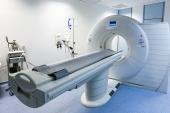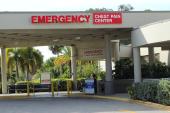Coronary CTA Reimbursement for US Hospitals to Double in 2025
The change reflects a growing understanding of what resources are needed to offer these scans and will likely improve access.

For once, cardiologists find good news in the US Centers for Medicare & Medicaid Services (CMS) annual Hospital Outpatient Prospective Payment System (HOPPS) final rule: in 2025 the payment rate for coronary computed tomography angiography (CCTA) will double.
Cardiac imagers have long lamented the fact that low reimbursement for CCTA has been a major hurdle limiting access to the technology, which currently has a class 1 recommendation in the latest American guidelines for the exclusion of obstructive coronary disease. Not only do these scans cost money to run, but also institutions must invest a significant amount of money in hardware, software, and trained personnel. Hence, many have not been able to afford to offer the tests under the current paradigm.
When CMS announced a proposed increase of its reimbursement to hospital-based programs from $175 to $357.13 over the summer, proponents of the CCTA celebrated a light at the end of a long advocacy tunnel.
Now, with the announcement of the final 2025 HOPPS final rule, CCTA will be reclassified into a higher ambulatory payment classification (APC) next year.
“By having this doubling in the hospital outpatient setting, this finally is going to allow facilities to say: this makes sense for us to invest in and patients are going to benefit,” said Michael Coords, MD (RadNet, Los Angeles, CA), regulatory task force lead on the Society of Cardiovascular Computed Tomography (SCCT) Health Policy and Practice Committee.
The update reflects “a better understanding of what it takes to perform [CCTA] and how it is essentially different than your standard CT scan of the chest,” he told TCTMD.
“We’re thrilled with the CMS’s ruling, which better aligns with the cost of providing CCTA services,” said Ahmad Slim, MD (Pulse Heart Institute Cardiology Services, Tacoma WA), chair of the SCCT Health Policy and Practice Committee, in a press release. “This is a huge win for US providers as well as the entire cardiac imaging community, ultimately improving patient access to this essential diagnostic tool, which aligns with the Society’s overall mission.”
Small Adjustment, Big Effect
- 75572: Heart CT with contrast for evaluation of cardiac structure and morphology
- 75573: Heart CT with contrast for evaluation of cardiac structure and morphology in the setting of congenital heart disease
- 75574: CT angiography of the heart, coronary arteries, and bypass grafts with contrast
“This small coding adjustment creates large ripples of impact, alleviating financial pressure on struggling medical practices and potentially expanding cardiac CT testing at more sites across the country, ensuring better patient access to this cost-efficient exam,” Slim said.
While the specific proportion of hospitals that currently offer CCTA is unknown, Coords said, “it's not nearly enough,” adding that he has had patients drive hours to be able to get scanned. The change in reimbursement “is going to certainly allow more facilities to start” offering CCTA as part of a “sustainable business model,” Coords added.
Notably, he said, “the impact is going to be one of the most significant ones that I've seen in my career, because without this, people just wouldn't have the access that they deserve and need.”
Coords specified that this change will only affect hospital-based programs, and not outpatient clinics. The latter will receive only a 12% increase in reimbursement as part of the Medicare Physician Fee Schedule and will still face challenges, “because margins are very tight, particularly for smaller groups,” he said. While the 12% increase is objectively good news, it’s not enough to overcome the gaps in what outpatient programs can afford, especially when it comes to hardware. “When you have better hardware, you can have lower radiation doses, you can scan more types of patients, and you can offer more types of exams that save lives,” said Coords. “So it's not unique just to the hospital setting.”
Coords said the SCCT plans to continue to advocate for increased reimbursement for CCTA in the outpatient setting and also to increase awareness and education around the technology, especially for referring cardiologists, primary care physicians, and patients.
Yael L. Maxwell is Senior Medical Journalist for TCTMD and Section Editor of TCTMD's Fellows Forum. She served as the inaugural…
Read Full BioSources
Society of Cardiovascular Computed Tomography. U.S. CMS agrees to double reimbursement for cardiovascular CT services. Published on: October 15, 2024. Accessed on: November 7, 2024.
Disclosures
- Coords reports no relevant conflicts of interest.





Comments